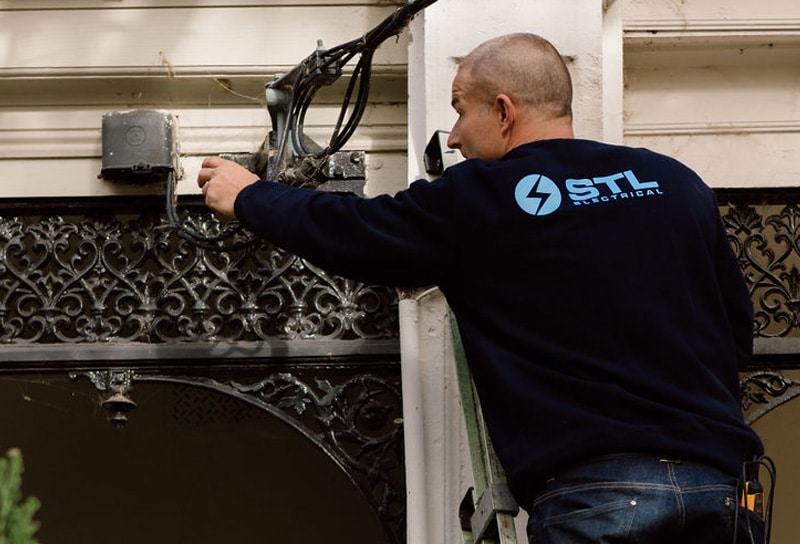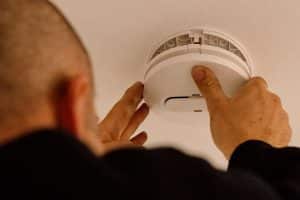House electrical rewiring is hardly something on anyone’s bucket list, but the risks of living with outdated or faulty wiring far outweigh the cost and effort involved in having it fixed. Around 40% of house fires in Australia are caused by some sort of electrical fault, overloading of the electrical system, or eroded wiring.
There are many factors influencing the scope of electrical rewiring, depending on your specific house. You may not be sure whether or not it’s necessary, or how much disruption it will cause to your daily life. Your electrician may be able to fix isolated faults quite easily, or might need to break into your walls for more extensive work, especially when it comes to rewiring an old house.
With so many variables to take into account – will you have to move out of your home for a while, for instance – there’s a lot to consider and plan for. To help you with this, let’s answer some of the most frequent questions people have about electrical rewiring.
Why should I have electrical rewiring done?
Personal safety
The first and most obvious reason to require electrical rewiring is the safety of you and your family. Even small faults like exposed wires can create a spark, known as arcing. The real danger with this is that a serious fire can develop before you notice anything amiss. It’s estimated that fire brigades in Australia respond to over 300 fires in residential homes every year.
Legal compliance
Every residential property is obliged to conform to the Australian wiring rules.
These set out the regulations for safe house wiring in great detail. It’s always worth calling in an electrician to do a full inspection to make sure your home complies with all of these.
Outdated electrical wiring systems
If you’ve bought a beautiful old house, its electrical system might not be in the best nick. It might use outdated materials like aluminium woring, or have degraded or damaged components that pose the risk of fire or nasty shocks. Rewiring an old house might take quite a bit of work, but it’s well worth it when you consider the hazards of not doing it.
Improved electrical capacity
If your home doesn’t have as many plug points as you need and you use too many appliances off the same multi-socket extension, you can end up overloading your electrical system. This can create a major fire hazard. Rewiring your home will allow you to upgrade your system to support more wall sockets safely.
Increased home value
An up-to-date modern electrical system can increase the value of your house. It will be capable of supporting the latest lifestyle trends, and the increased need for adequate power that these bring. Home automation systems are a good example of this.
How do I know if I need electrical rewiring?
There are some common signs of electrical problems in your house that may indicate that you need to have your house rewired. Here’s a checklist of things to watch out for. If they regularly occur, there’s a good chance that you need to call in an electrician.
- You see a spark when you plug in appliances.
- Your lights often dim or flicker for no reason.
- You hear buzzing sounds from your electrical outlets.
- Your circuit breakers or fuses are constantly tripping.
- You see discoloured areas on wall sockets or extension cords.
- Your light bulbs don’t last as long as they should.
- Your appliance plugs get hot when attached to wall sockets.
You can also read a more detailed discussion of the warning signs of outdated electrical wiring.
What influences the cost of electrical rewiring?
The cost of electrical rewiring depends on many factors – there’s no one-size-fits-all price. The biggest factor is the scope of your electrical problem, which can also be related to the size of your house. Your home’s location and construction plays a role too. If your wiring system is easily accessible, for instance, it will cost less than if your electrician has to break into walls to carry out the work.
Then there are the materials required to fix the problem, including switchboards, wall socket outlets, light switches and the sheer amount of physical wire required. You should also factor in your electrician’s hourly labour rates, and any additional work you might want done, like installing extra power sockets.
How long does electrical rewiring take?
Of course this depends on the scope of the work, but in general, full house electrical rewiring will take around two or three days. If a lot needs to be done, it can take up to a week. This can be quite disruptive, as you’ll be without power, so it’s not a bad idea to arrange to stay with friends or relatives while the job is carried out.
Will rewiring my house save on electricity usage?
If you have outdated or faulty electrical wiring, you’ll typically use more electricity, as the wiring efficiency is degraded. Rewiring will update your system and usually reduce your power consumption, depending on the nature of the faults.
Can I fix wiring problems myself?
Assuming you’re not a qualified electrician yourself, the answer is an outright no. Leaving aside the dangers, it’s illegal in Australia to wire any part of your home or install things like power points, lights and switches yourself. Always use a professional for this type of work, who is either a licensed electrician or a registered electrical contractor.
How do I find the right Melbourne electrician for electrical rewiring?
Don’t assume that all electricians are equal – only use one with a valid certification and license. Check their references, if possible, and make sure that they have a well-established reputation in your area. A diligent electrician will give you a detailed quote and explain it all to you, and will also give you a compliance certificate once the work has been done.
STL Electrical makes an excellent choice, with our solid track record of reliability and high quality service, carried out with full compliance by experienced electrical rewiring experts. Contact us immediately if you notice the warning signs of a degraded electrical system.




